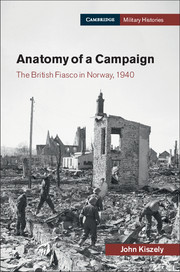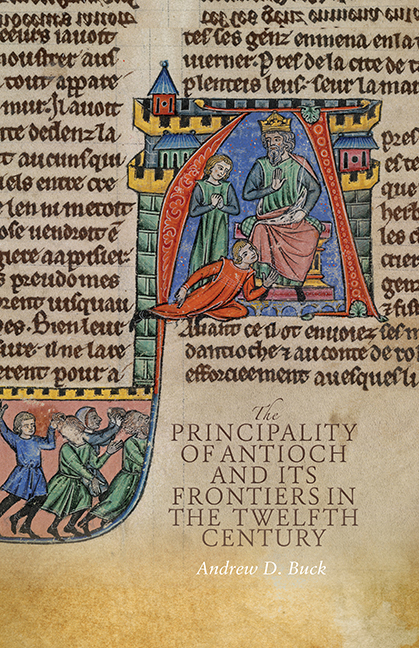Refine search
Actions for selected content:
15418 results in Military history
Index
-
- Book:
- The British Army and the First World War
- Published online:
- 04 May 2017
- Print publication:
- 15 May 2017, pp 462-476
-
- Chapter
- Export citation
7 - The Western Front, 1915
-
- Book:
- The British Army and the First World War
- Published online:
- 04 May 2017
- Print publication:
- 15 May 2017, pp 237-276
-
- Chapter
- Export citation
Copyright page
-
- Book:
- The British Army and the First World War
- Published online:
- 04 May 2017
- Print publication:
- 15 May 2017, pp iv-iv
-
- Chapter
- Export citation
Contents
-
- Book:
- The British Army and the First World War
- Published online:
- 04 May 2017
- Print publication:
- 15 May 2017, pp v-v
-
- Chapter
- Export citation
1 - The Pre-War Army
-
- Book:
- The British Army and the First World War
- Published online:
- 04 May 2017
- Print publication:
- 15 May 2017, pp 7-46
-
- Chapter
- Export citation
Bibliography
-
- Book:
- The British Army and the First World War
- Published online:
- 04 May 2017
- Print publication:
- 15 May 2017, pp 422-461
-
- Chapter
- Export citation
6 - The Western Front, 1914
-
- Book:
- The British Army and the First World War
- Published online:
- 04 May 2017
- Print publication:
- 15 May 2017, pp 207-236
-
- Chapter
- Export citation
9 - The Western Front, 1917
-
- Book:
- The British Army and the First World War
- Published online:
- 04 May 2017
- Print publication:
- 15 May 2017, pp 307-344
-
- Chapter
- Export citation
2 - The Officer Corps
-
- Book:
- The British Army and the First World War
- Published online:
- 04 May 2017
- Print publication:
- 15 May 2017, pp 47-85
-
- Chapter
- Export citation
8 - The Western Front, 1916
-
- Book:
- The British Army and the First World War
- Published online:
- 04 May 2017
- Print publication:
- 15 May 2017, pp 277-306
-
- Chapter
- Export citation
Introduction
-
- Book:
- The British Army and the First World War
- Published online:
- 04 May 2017
- Print publication:
- 15 May 2017, pp 1-6
-
- Chapter
- Export citation
10 - The Western Front, 1918
-
- Book:
- The British Army and the First World War
- Published online:
- 04 May 2017
- Print publication:
- 15 May 2017, pp 345-388
-
- Chapter
-
- You have access
- HTML
- Export citation
Figures
-
- Book:
- The British Army and the First World War
- Published online:
- 04 May 2017
- Print publication:
- 15 May 2017, pp vi-vi
-
- Chapter
- Export citation
11 - Beyond the Western Front
-
- Book:
- The British Army and the First World War
- Published online:
- 04 May 2017
- Print publication:
- 15 May 2017, pp 389-414
-
- Chapter
- Export citation
Conclusion
-
- Book:
- The British Army and the First World War
- Published online:
- 04 May 2017
- Print publication:
- 15 May 2017, pp 415-421
-
- Chapter
- Export citation
3 - A Nation in Arms
-
- Book:
- The British Army and the First World War
- Published online:
- 04 May 2017
- Print publication:
- 15 May 2017, pp 86-134
-
- Chapter
- Export citation
4 - Citizen Soldiers
-
- Book:
- The British Army and the First World War
- Published online:
- 04 May 2017
- Print publication:
- 15 May 2017, pp 135-169
-
- Chapter
- Export citation
5 - British Strategy and the British Army
-
- Book:
- The British Army and the First World War
- Published online:
- 04 May 2017
- Print publication:
- 15 May 2017, pp 170-206
-
- Chapter
- Export citation

Anatomy of a Campaign
- The British Fiasco in Norway, 1940
-
- Published online:
- 11 May 2017
- Print publication:
- 27 April 2017

The Principality of Antioch and its Frontiers in the Twelfth Century
-
- Published by:
- Boydell & Brewer
- Published online:
- 09 May 2017
- Print publication:
- 17 February 2017
